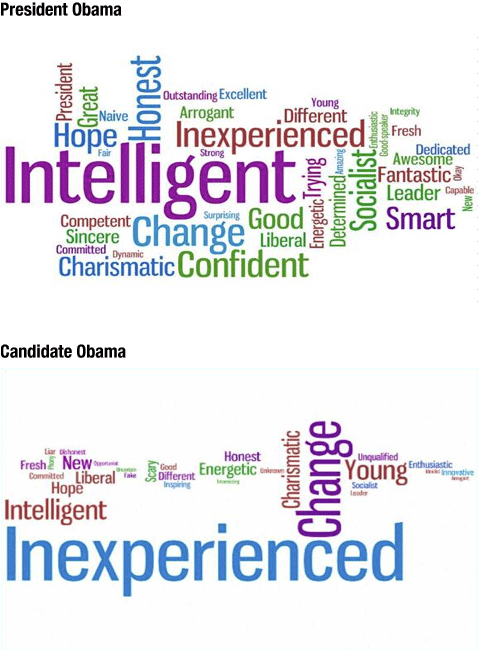Former Clinton strategist and pollster Dick Morris (the one who departed the Clinton inner circle before Mark Penn and has a long history as a hatchet man for the Republicans) has a revealing article in
The Hill discussing a recent
Gallup poll in which he selectively distorts the numbers to push the "Obama is weak/McCain is strong" narrative into the Beltway consiousness.
This poll was released by Gallup in mid-March under the headline, "
Perceived Honesty Gap for Clinton Versus Obama, McCain." The pollsters summarized their findings as follows:
It is clear that voters are able to distinguish among the three major presidential candidates and rate some areas as strengths and some areas as weaknesses for each. Clinton would appear to have more weaknesses in the public's eyes than McCain or Obama, though that might reflect the fact that she is a better-known figure (and has lower favorable ratings). Currently, she holds a significant lead over Obama on only 2 of the 10 character dimensions evaluated here (strong and decisive leader, and having a clear plan for solving the country's problems) and McCain on one (clear plan). Despite this, she remains competitive with McCain in general-election matchu.ps and she has held off Obama's attempts to wrap up the Democratic nomination
Morris chose to focus on the secondary headline, "McCain most likely to be viewed as a strong leader" and push this as the narrative. Just as the Rove Republican smear machine labeled Kerry as a "flip-flopper" in the spring of 2004, the 2008 strategy is to define Obama as weak and indecisive. It is important to understand this effort is already well underway. Morris even admits the Right needs to soften him up now for the general election campaign: "the pressure the right brings to bear on him will cause him to appear weak in the face of attacks."
But a close look at the numbers doesn't show a huge difference between Obama and McCain at this stage of the campaign. Let's look at the numbers Morris is using. According to Morris:
Obama won:
• Cares about the needs of people like you, 66% to 54%
• Shares your values, 51% to 46%
•Understands the problems Americans face in their daily lives, 67% to 55%
McCain won:
• Is a strong, decisive leader, 56% to 69%
• Is honest and trustworthy, 63% to 67%
• Can manage the government efficiently, 48% to 60%
Neither won:
• Has a clear plan for solving the country's problems, 41% to 42%
• Has a clear vision for the country's future, 67% to 65%
• Would work well with both parties in Washington to get things done, 62% to 61%
• Is someone you would be proud to have as president, 57% to 55%
The toe-sucker didn't indicate what the MoE was on this poll. It's plus or minus 3%, which means the separation between Obama and McCain on the "honest and trustworthy" and "shares your values" traits are statistically insignificant.
These numbers fit into one of Morris' favorite memes: Democrats are the (empathetic) Mommy Party and Republicans the (efficient) Daddy Party. The conclusions he draws are selectively simplistic and spun to fit into his oft-stated worldview. Morris goes once step further, diminishing Obama's general election chances and elevating McCain's by pulling out the Republican trump card, 9-11:
in an age of terrorism, weakness is a capital crime. McCain needs to base his campaign on establishing Obama’s weakness and his own strong leadership by comparison.
Morris's analysis depends on spinning these numbers in three subtle (yet sinister) ways. Ignoring the positive, redefining the term "weak" and exaggerating the negative.
Ignoring the Positive: At this stage of the campaign, both candidates have a positive national image. Morris fails to note that both Obama and McCain exceed 50% on all but two questions. Obama almost cracks the 50% threshold on efficient management while McCain is only slightly under that mark on the "shares your values" question. Both fall short on the same question: Neither is viewed as having a clear plan for the country's future.
Redefine "Weak:" Fifty-six percent say Obama is a decisive leader and sixty-five percent says he has a clear vision for the country's future. Only in the view of a GOP-spinmeister could Obama's respectable and competitive numbers translate into being "weak."
Exaggerate the Negative or How deep is that "Strength"? Additionally, the points that McCain has "won" are likely to be very much in play once the Democratic nomination battle is settled and the Democrats turn their unified energies to McCain. It will be a Democratic priority to morph McCain's steadfastness into Bush's seven years of stubbornness. The Dems will also make the argument that the neocon laissez-faire economic ideology embraced by McCain simply amounts to four more years of Bush's disastrous domestic policies. Once this happens, I cannot see McCain maintaining a significant advantage on the leadership or management questions. Conversely, can anyone see McCain closing the gap on the "empathy" questions once the general election campaign is underway?
Morris fails to consider the dramatic changes underway within the 2008 electorate and dismisses the 2006 results. He basically admits the only path to a GOP presidential victory depends on convincing a majority of voters that foreign threats are more important than domestic economic concerns. Will the Republican Party be successful once again playing the politics of fear?
Perhaps counter-intuitively to progressive activists, Morris is correct in stating Iraq may be McCain's strongest (and perhaps only) winning general election issue. This is why Obama doesn't want to be talking about Iraq 24-7 in the summer and fall. He should (and I believe he will) focus on the economy.




